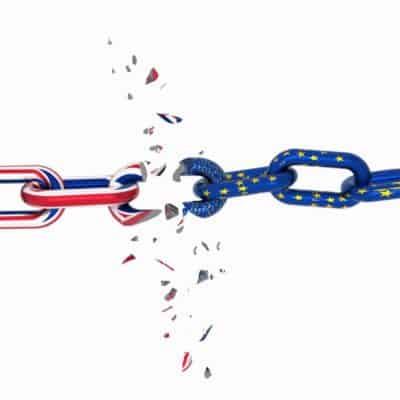by Michael Armstrong
Throughout our lifetimes the United States has been the wealthiest, most prosperous nation in the world. A multitude of conveniences, now considered necessary, have provided a style of life unparalleled in history. The sheer magnitude of our commerce, agriculture, and manufacturing is staggering. Yet all of our wealth has not been enough. The United States, like most other nations, continues to sink deeper and deeper into debt.
While many politicians have bemoaned this deplorable state of affairs (when it suits their agenda and the blame can be laid elsewhere) nothing ever seems to get done. Is it compassion? Is it corruption? Certainly the individuals or industries on the receiving end would rally against anyone threatening to cut their funding. Some self interest is inevitable in those who must repeatedly face election. For most it is their career that is at stake, their livelihood. It takes an uncommonly resolute individual to make that kind of sacrifice on principle, and in congress it takes a majority to do anything at all.
So delay is the name of the game. Now is never the time to take action, there is always some necessity requiring a continuation of the status quo. That’s not to say that there is any easy solution. There isn’t. Difficult choices will be required to solve this problem the right way. For instance, neither party has any appetite for addressing Social Security, and since the crisis is still an estimated 15 years away, you can bet that neither will. Assigning blame doesn’t fix anything and you can hardly fault people who paid into the program their entire lives for living longer.
Regardless of the difficulties in finding a solution, one of the major problems with delay is being graphically illustrated around the world right now. That’s right, the Dread Virus Corona. Though reluctant to mention it at all, and dreaming of the good old days when “going viral” had positive implications, mentioned it must be. The mainstay of those who have sought to calm concerns about the rising debt has been the power and potential growth of the economy. Somehow, that’s not very comforting right now.
“Normal conditions” don’t exist at the moment. Trillions in emergency spending have been piled on top of the deficit that already existed. Lots more will be “necessary” if you believe any of those who will actually be making the decisions. Meanwhile the economy limps along on two broken legs looking for a cure that may or may not exist. To think we are going to pick up right where we left off is a delusion.
Many businesses have already adapted, finding they can work remotely with no loss of productivity. What sort of ripple effect will that create? Smaller office requirements mean less demand for commercial property, a sector that has already been devastated by digital commerce. You can extrapolate from there; less insurance, cleaning services, maintenance, amenities like coffee and even utilities will lose revenue. The same exercise can be applied to people who will not be commuting and the change in their habits. What will the effect be on clothing sales, the automotive industry, convenience stores, and restaurants, just to name a few?
As of this writing the U.S. national debt is over $25 trillion but that is likely to increase, perhaps substantially before this magazine makes it to print. We are approaching 120% of GDP but with the economy in a state of flux this may not be the most reliable measure. Perhaps a more startling figure is that of total debt, which includes individual and business obligations as well as those of local, state, and federal government. It has surpassed $77 trillion and since one of the stop-gap measures being employed is rapid credit expansion, we can only expect it to rise.
The Federal Reserve has also been resorting to unprecedented measures. Holding interest rates at near zero percent is nothing new and neither is quantitative easing. Purchasing corporate bonds to shore up businesses who’s losses can be attributed to the virus (based on certain metrics and past performance) is not something we’ve seen before. Various bailouts notwithstanding, the approach is quite different. Hopefully they will not resort to negative interest rates, as some European countries have, to discourage saving and promote investment. With the situation developing so rapidly it’s hard to know exactly where each country stands, fiscally, but the problems faced by the EU in recent years have only been compounded.
Greece’s debt is well over 200% of GDP and Italy is over 150%. On the other side of the world Japan is actually approaching 300%! These figures do not take into account the enormous amounts of spending on the Coronavirus and right now we can only guess what the increase will be. Countries like Saudi Arabia and Russia have less than 20%, which helps explain what they have done to the oil and gas industry in the midst of all this. China has a little over 50%.
Not to be dire, but the world is working its way into a dangerous and above all fragile situation. What further shock could our systems stand at the moment? It’s good to put on a brave face and be positive (indeed the system is largely sustained by confidence, which is scary in and of itself) but reality needs to be acknowledged and addressed for there to be any real hope of recovery. Provided of course the legislative appetite for it ever materializes, and not just in this country but around the world.
The charade cannot continue forever and no country is free of foreign entanglements. Major corporations (the “too big to fail” kind) operate all over the world. Financial systems overlap. It’s troubling to consider that a country as overloaded as Japan actually owns more than $1 trillion of U.S. debt. The major nations of the world have lined themselves up like dominoes. This is why countries like Greece continue to get “bailouts” despite irresponsible fiscal practices. Their commitments are still considered assets on the balance sheets of debt holders. If they collapse that all gets wiped out, which cannot be allowed.
What a mess. How can it be solved? Or do the powers-that-be really intend to solve it at all? Are we heading towards some type of strategic bankruptcy for nations scenario? Our own President employed such tactics for his own corporations multiple times in the past and he is not shy about discussing it. Time will tell, but it doesn’t seem like the status quo can be maintained forever. Everyone is familiar with what the Bible prophesies for the last days and the Mark of the Beast that will be required for anyone to buy or sell. We have discussed before how modern technology has now made such a thing feasible.
While global finances are inextricably linked, sovereign systems still exist. With so many engaging in unsustainable practices and devaluing their currency to the chagrin of their debt holders, can you see how there might be a push to do away with that? Can you see how wild spending in an emergency, like we are seeing right now all over the world, could be used to collapse a system already abused to the breaking point in a way that “it’s nobody’s fault”? In the midst of calamity or emergency, changes are possible that would otherwise be rejected out of hand.
Things can happen very rapidly. What has transpired on account of this virus would have been unimaginable even a year ago. Whatever direction this country or the world takes, our trust is in God alone, and certainly not in government or currency. Our lives are in His hands. It’s comforting that this has always been the case, though we seem to talk about it more in times of trouble. Let’s pray that this nation, born from those who risked all to be able to worship according to their conscience without fear of persecution, is still something He considers worth saving.










